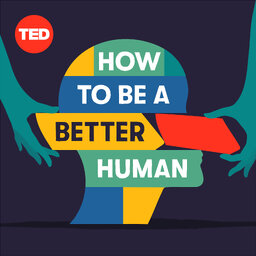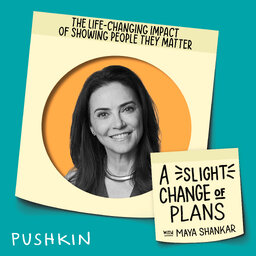The Science of Motivation
You can follow the show at @DrMayaShankar on Instagram.
Dr. Ayelet Fishbach is a professor of psychology, and an expert on the science of motivation. She'll teach us how to set smarter goals, and give us science-based strategies to help us reach them.
If you’d like to keep up with the most recent news from this and other Pushkin podcasts be sure to sign up for our email list at Pushkin.fm.
In 1 playlist(s)
A Slight Change of Plans
What happens when life doesn’t go according to plan? In this award-winning podcast, cognitive scient…Social links
Follow podcast
Recent clips

The Invisible Weight of Olympic Gold
34:12

How to Accept the Messiness of Love
40:42

The Life-Changing Impact Of Showing People They Matter
39:33
 A Slight Change of Plans
A Slight Change of Plans